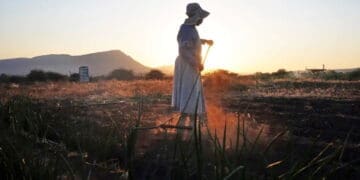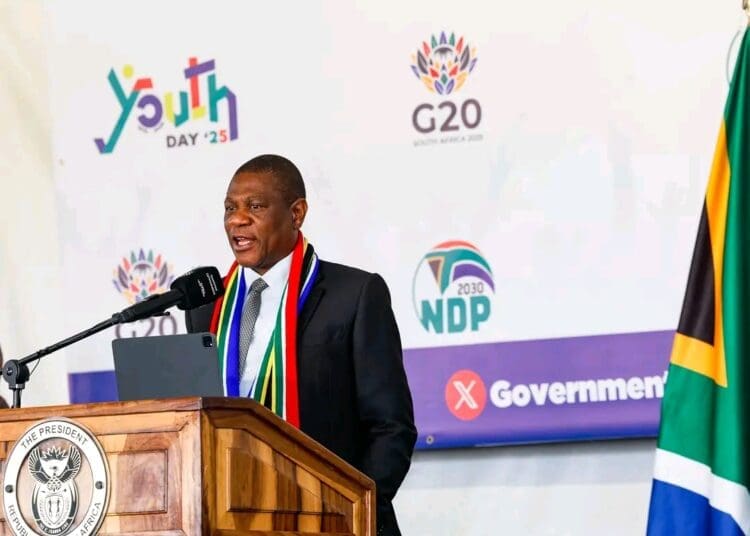With an alarming 56.3% of young people unemployed and over nine million not engaged in education, training, or work, the government has introduced a series of funding initiatives to help support young people and get them involved entrepreneurship.
They include the Township and Rural Entrepreneurship Fund, the Youth Challenge Fund, and the Innovation Fund. All of them are aimed at unlocking growth for youth SMMEs.
Deputy President Paul Mashatile noted during the official Youth Day commemoration in North West on Monday that youth SMEs “are the heartbeat of a future-ready economy”.
He said funds and laws must unlock real opportunity and not red tape.
“Supporting youth-owned SMMEs is no longer optional, it is essential,” Mashatile said.
For many young entrepreneurs, this support could not have come at a more critical time.
“I used to operate out of a shack behind my grandmother’s house,” said Ayanda Maseko, 27, who founded GreenRise Farming Solutions in KwaZulu-Natal.
She received funding from the Youth Challenge Fund in April last year and again in March 2025.
“With support from the Youth Challenge Fund, I was able to secure a small greenhouse and hire two people from my community. I’m not just growing crops anymore, I’m growing hope,” she said.
Maseko dropped out of university during her second year due to financial challenges.
“People think entrepreneurship is glamorous, but it’s tough. This kind of support shows that someone is finally taking youth businesses seriously,” Maseko said.
In Johannesburg, 30-year-old Boitumelo Ndlovu, who runs a tech startup Ndlovu Solutions PTY Ltd that offers logistics software to township-based spaza shops, has accessed funding through the Innovation Fund.
She told Vutivi News that the funding had been transformative.
“The money helped us to scale, yes, but the mentorship that came with it has been just as important,” she explained.
“We are learning how to structure our business for long-term sustainability. Before this, I was close to giving up. I had talent, but no access.”
Ndlovu highlighted the importance of administrative ease in such programmes.
“Red tape used to kill dreams. But this time, the application was straightforward. That gave me the confidence to apply and pitch something I never thought I’d have the platform to do,” she said.
In rural Limpopo, Neo Sebashe, 25, who owns EcoTwist Cleaning Products, said government support allowed her to move from making cleaning detergents in her kitchen to leasing a small production facility.
“I didn’t need millions, I just needed someone to back me,” Sebashe said.
She now employs four women who are all under the age of 30.
“This is more than a business, it’s a ripple effect. My story shows what happens when we’re trusted with opportunity,” Sebashe said.
While the government’s role has been pivotal, young entrepreneurs are clear that the real work begins after the funding.
“Getting money is one thing,” Maseko reflected, “but learning how to use it wisely, report correctly and grow responsibly, that’s where the future lies.”































































